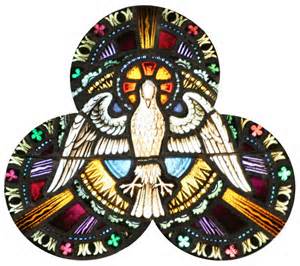“We Must Obey God!”
Acts 5:12-29 – June 28, 2015
I remember an older documentary I saw on PBS about fifteen years ago, about classic comedy shorts. Tracing the history of comedy, I was introduced to a serious study of the silent comedy shorts of the teens and 1920’s. Including the Keystone Kops. I immediately recognized their wacky, incompetent ways as similar to other, more recent comedy acts I had seen. Running around, like chickens with their heads cut off. Bumbling, yet energetic, inevitably they would end up floundering around helplessly.
This reminded me so much of the Temple guards from our reading today.
You remember our Summer Sermon Series, from the book of Acts. Postcards from the Early Church. When last we left our intrepid heroes, Peter and the other apostles were regularly preaching in and around the Temple in Jerusalem. In the city center, getting lots of attention from all passersby. And especially getting negative attention from the Jewish leaders, the Sanhedrin.
Peter and his fellow apostles remind me of some modern-day radicals—I mean, street preachers. People like those calling for a living wage, or like those advocating for wider access to decent education for all people, or those clamoring for clergy accountability for hidden sexual abuse. Even though the Jewish authorities told Peter and company to pipe down! The disciples refused to do so. Just like the modern-day street preachers protesting today.
Remember, last week I talked about how those pesky, persistent disciples were like the carnival game Whack-a-Mole? How they kept popping up, all over the place, no matter how much the Jewish leaders whacked at them? Here they are again, those pesky, persistent preachers. This resistance was serious! This was major disruption!
Of course the Jewish leaders and Temple police needed to round up these pesky, disruptive upstarts!
We pick up the narrative at verse 17 of chapter 5 of Acts: “Then the high priest and all his associates, who were members of the party of the Sadducees, were filled with jealousy. 18 They arrested the apostles and put them in the public jail. 19 But during the night an angel of the Lord opened the doors of the jail and brought them out. 20 “Go, stand in the temple courts,” the angel said, “and tell the people all about this new life.” 21 At daybreak they entered the temple courts, as they had been told, and began to teach the people.”
You heard it again, right here. An angel of the Lord supernaturally went into the prison by night, and miraculously released this group of men. (They probably all were men, in prison. Although, there were women disciples of the Risen Jesus, too!)
Next thing you know, the angel of the Lord told the disciples to continue to preach, and to continue spreading the good news. If I had just had an angel perform a miracle especially for me, chances are that I would listen to that angel, too!
Moreover, the disciples did not hightail it for the hills. Instead, they stayed put, in Jerusalem, and got right back in the thick of things.
Even though the Sanhedrin specifically told them NOT to preach any more, what do you think they are doing? You guessed it. They are out in the Temple again, and on the downtown street corners, preaching away. Telling everyone who would listen about the Risen Lord Jesus, the resurrected miracle-working Rabbi who rose from the dead, ascended into heaven, and is seated at the right hand of the Father, God Almighty.
Despite being sternly told not to say a word about what had happened in Jerusalem in the past few weeks.
Now, let’s look at the flip side. The side of the Jewish leaders. Starting at verse 21: “When the high priest and his associates arrived [in the morning], they called together the Sanhedrin—the full assembly of the elders of Israel—and sent to the jail for the apostles. 22 But on arriving at the jail, the officers did not find them there. So they went back and reported, 23 “We found the jail securely locked, with the guards standing at the doors; but when we opened them, we found no one inside.” 24 On hearing this report, the captain of the temple guard and the chief priests were at a loss, wondering what this might lead to. 25 Then someone came and said, ‘Look! The men you put in jail are standing in the temple courts teaching the people.’”
I can’t help but keep going back to the Keystone Kops! The Temple guards and Jewish leaders, who threw all these guys in prison. Even the bars and locked doors couldn’t hold the disciples! As one commentary said, the opposition—the priestly establishment—could not stop these determined preachers. The guards’ and leaders’ befuddled incompetence highlights how useless it is to oppose God and God’s purposes.
Rev. Daniel B. Clendenin preached a sermon on this text from Acts 5 a few years ago. He noted that “in July 2003, Dominican nuns Ardeth Platte, Carol Gilbert and Jackie Hudson, members of a peace community in Baltimore called Jonah House, were sentenced to 34 months each in federal prison for sabotaging the national defense and damaging government property. They had protested nuclear weapons by smearing a cross on a Minuteman silo with their own blood and pounding on it with hammers.”
Regardless of what anyone’s personal feelings about national defense may be, I can palpably feel how deeply these women believed in what they were doing. How they said, like Peter and the other apostles, “We must obey God rather than human beings!” How strongly theses nuns felt that these deadly nuclear bombs killed innocent civilians as well as opposition soldiers. Not just “collateral damage,” but individuals. Women, children, seniors, clergy, medical personnel. All creations of God, and all much loved by God. Just like all of us. Each one of us.
Did you hear? “We must obey God rather than human beings!” That’s how Peter and the other disciples responded to the Sanhedrin! That was their answer, and then they kept on preaching! They kept on spreading the Word of God!
The Jewish leaders desperately wanted to get these disrupters out of the way. But the public response and reaction to the outspoken disciples and their preaching—plus their very public miracles!—was overwhelming! The guards knew it very well, and they didn’t want to get hurt, or even stoned! Popular opinion? Very much in the disciples’ favor.
Looking at the present day, what is our situation? If we were to stand before a modern-day group of civic leaders, if we were on trial for being a Christian, would there be enough evidence to convict us?
Are we telling people about the Risen Jesus? Are we witnessing to His mighty power? Are we telling people of Jesus’ awesome, affirming, welcoming acceptance? Do we let people know about Jesus’ all-inclusive love?
We can see, again and again in the Gospels, Jesus loves everyone! The loose-living Samaritan woman at the well. Nicodemus, member of the Sanhedrin. The thief on the cross. The chronically unclean woman with the flow of blood. That chiseling, tax collector-turncoat Zaccheus. I think that message of unconditional love and acceptance, told to each and every person the disciples met, changed people’s lives. Changed people’s hearts.
I ask again—what about you, and what about me? If we were on trial for being a Christian, would there be enough evidence to convict us? Yes, we answer to God. And, yes, we offer each person Jesus Christ. His loving, welcoming embrace is ready, today! Are you? His life-changing message is here and now. Do you offer it freely, to everyone you meet?
God willing, I can. God willing, you can, too! Let us pray for the power, for the openness, for the willingness to share God’s good news. The Risen Jesus loves you. The Risen Jesus loves me. And He is ready to welcome all those who would come to the Family of God. In Jesus’ blessed, powerful name we pray, Amen!
(Suggestion: visit me at my daily blog for 2015: matterofprayer: A Year of Everyday Prayers. and my other blog, A Year of Being Kind . Thanks!)






